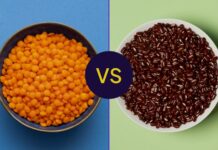Chickenpox, also known as varicella, is a highly contagious viral infection that most commonly affects children, though adults can contract it too, especially if unvaccinated or previously exposed. While typically mild in children, chickenpox can be more severe and lead to complications in teenagers, adults, pregnant women, and individuals with weakened immune systems. Understanding treatment options, effective home remedies, and preventative measures is crucial for managing this common illness.
Understanding Chickenpox and When to Seek Medical Attention
The hallmark of chickenpox is an itchy, blister-like rash that spreads across the body. While most cases resolve on their own within one to two weeks, certain individuals require medical intervention. Doctors typically recommend a “watch and wait” approach for children with mild cases, focusing on symptom relief. However, antiviral medications may be prescribed for adults, teenagers, pregnant women, or those with compromised immunity, as they are at higher risk of severe complications.
When to consult a doctor:
- High fever (over 102°F or 39°C)
- Severe dehydration
- Difficulty breathing
- Confusion or lethargy
- Worsening rash that spreads to the eyes
Medication Options for Chickenpox
Doctors may prescribe the following medications to manage chickenpox:
- Antivirals: Acyclovir, valacyclovir, or foscarnet can reduce the severity and duration of the illness, especially when started within 24 hours of rash onset. These are typically reserved for high-risk patients.
- Pain Relievers: Acetaminophen (Tylenol) is recommended for fever and mild aches. Avoid aspirin due to the risk of Reye’s syndrome, a rare but serious complication. The use of ibuprofen (Advil, Motrin) and other NSAIDs is controversial, with some studies linking them to an increased risk of bacterial skin infections, though evidence is marginal.
- Antihistamines: Oral antihistamines like diphenhydramine (Benadryl) can help relieve itching and may induce sleep. Topical antihistamines should be avoided, as they can cause allergic reactions and are not effectively absorbed.
- Varicella-Zoster Immune Globulin (VZIG): This is recommended for high-risk individuals exposed to the virus who cannot receive the vaccine, such as pregnant women or immunocompromised patients.
Effective Home Remedies for Symptom Relief
While medication can help, many chickenpox symptoms can be managed at home with simple remedies:
- Cool Compresses: Apply cool, wet cloths to itchy or painful areas for 10-15 minutes several times a day.
- Cool Baths: Soak in a tub of cool water with added baking soda, colloidal oatmeal, or a commercial oatmeal bath product. Repeat every 3-4 hours during the initial days of the illness.
- Calamine Lotion: Apply a thin layer of calamine lotion to blisters to help relieve itching. Avoid getting it in the eyes.
- Soft, Bland Foods: If mouth sores develop, stick to soft, non-irritating foods to minimize discomfort. Avoid spicy, salty, or acidic options.
- Hydration: Drink plenty of fluids to prevent dehydration, especially if appetite is reduced.
- Keep fingernails trimmed short to reduce the risk of skin infection from scratching.
Prevention: The Power of Vaccination
The most effective way to prevent chickenpox is through vaccination. The chickenpox vaccine is highly effective, reducing cases by 97% since its introduction in the 1990s. The CDC recommends two doses for children, teenagers, and adults who have never had the disease or been vaccinated. VZIG may be considered for those ineligible for vaccination, such as pregnant women or immunocompromised individuals.
Lifestyle Changes to Aid Recovery
In addition to medical and home remedies, these lifestyle changes can promote healing and prevent spreading the virus:
- Stay home from work or school until all blisters have crusted over.
- Bathe regularly with soap and water to prevent secondary skin infections.
- Wash hands frequently to minimize spreading the virus.
- Rest adequately to support the body’s immune response.
Conclusion
Chickenpox, while generally mild, can be uncomfortable and potentially serious for certain individuals. Effective management involves symptom relief through medication and home remedies, as well as preventative measures like vaccination. If you or your child develops symptoms, consult a doctor to determine the best course of action. The chickenpox vaccine remains the most effective way to protect against this common viral infection























